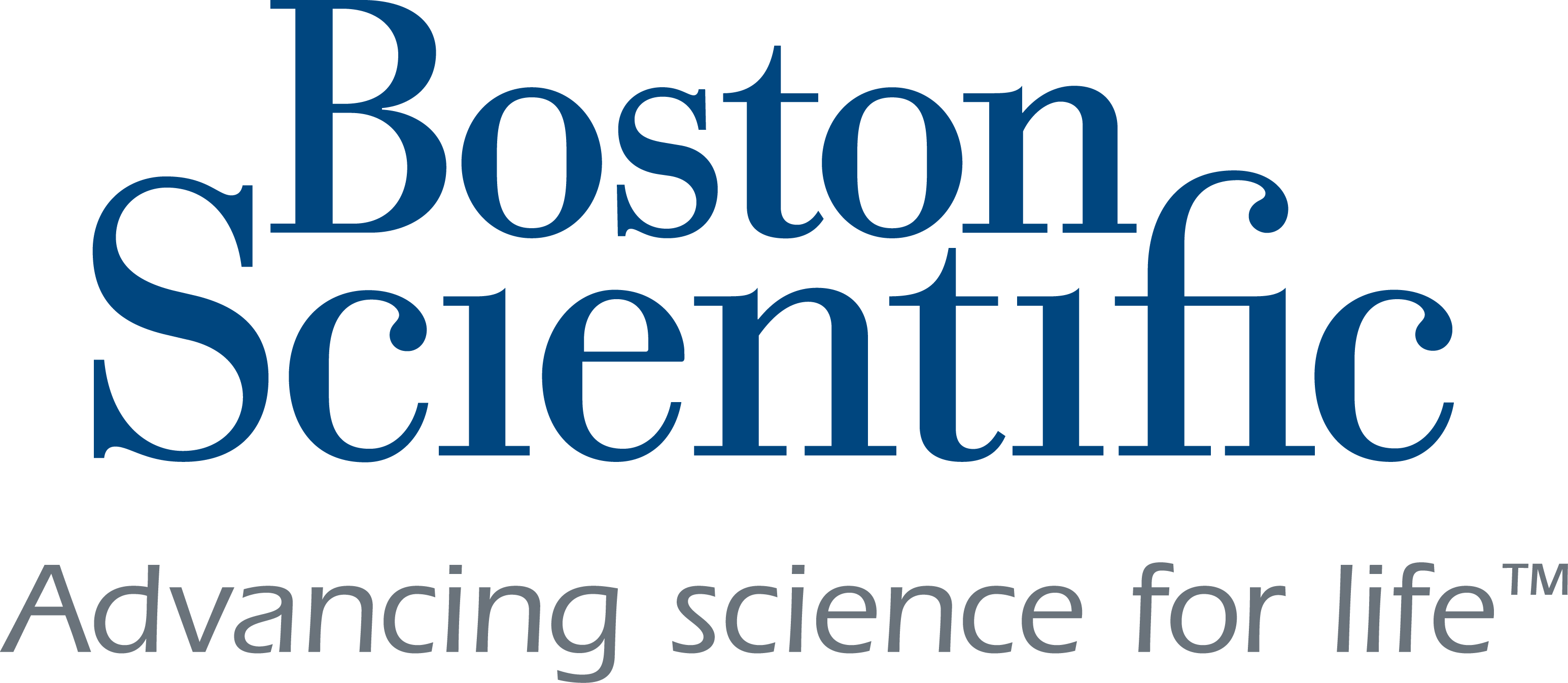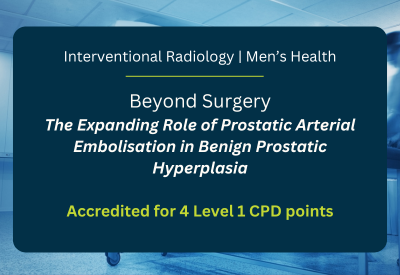Return to the Men's Health Module
Learn More About this Programme
This Webinar is part of a 7-Module series. You can find out more about this programme hereStart the Activity
About this Activity
Benign prostatic hyperplasia is a common and increasingly burdensome condition in older men, often leading to significant lower urinary tract symptoms and reduced quality of life. Prostatic artery embolisation (PAE) is gaining traction as a safe, image-guided, minimally invasive alternative to surgery for these patients.
Drawing on three key studies—including international multicentre data, long-term outcomes from a high-volume centre, and the first South African public sector case series—this narrative review provides a balanced, evidence-based assessment of PAE’s clinical efficacy, safety, and durability. In the South African context, where surgical backlogs, limited urological access, and budgetary constraints delay care for many men with BPH, the provision of such options is especially relevant.
This article aims to deepen practitioners' understanding of BPH management within a resource-constrained environment, bridging global innovation with local applicability to improve patient outcomes.
What You Will Learn
1. Growing Burden of BPH in Ageing Populations
Explore the rising prevalence of benign prostatic hyperplasia (BPH) and its impact on patients and healthcare systems—particularly in low- and middle-income countries.
2. Understanding PAE as a Minimally Invasive Alternative
Learn how Prostatic Artery Embolisation (PAE) compares to conventional medical and surgical treatments, and why it is gaining global recognition as a safe, effective, and well-tolerated option.
3. Clinical Evidence from Global and Local Studies
Review findings from three pivotal trials—including one from South Africa—that support the safety, efficacy, and durability of PAE across diverse patient populations.
4. Relevance to Resource-Limited Healthcare Settings
Understand how PAE can help mitigate challenges such as surgical backlogs, limited theatre availability, and delays in urologic care in the South African public sector.
CPD Accreditation
This activity review is accredited for 4 Level 1 Clinical points. To receive your accreditation points, you must complete the articles and the associated questionnaire.
HPCSA-registered healthcare professionals
On completion of both activities, HPCSA-registered healthcare professionals will receive 4 Level 1 CPD points.
The Medical Education Network will submit a record of your completed activities to the HPCSA at the end of each month. You will receive a notification email from us informing you that this has been done.
Non-HPCSA-registered healthcare professionals.
If you are a non-HPCSA-registered healthcare professional, this activity may contribute to your accreditation requirements. Please keep a record of your certificate obtained on passing this questionnaire for submission to your respective Registration Council. For more details regarding how many points you will be awarded, kindly contact your Council directly.

The Medical Education Network has partnered with Boston Scientific to bring you this Africa-first CPD programme
Important CPD Accreditation Record Information
HPCSA-Registered Practitioners
If you are an HPCSA-registered practitioner, this clinical review has been accredited for 4 Level 1 points upon successful completion of the associated questionnaire. MedED will automatically submit your completed activities to the HPCSA at the end of each month.
We will notify you by email once we have submitted your record, so you know it has been done.
Still have questions? Access our FAQ section or feel free to contact us
Non-HPCSA Practitioners
If you are a non-HPCSA registered practitioner or a practitioner from a country outside of South Africa, your CPD activities may contribute to your accreditation requirements.
Please retain the certificate you receive at the end of your activity for submission to your respective Registration Council.
About the Medical Education Network
About Us
The Medical Education Network is an independent, free-for-use resource for healthcare practitioners in sub-Saharan Africa.
We provide a range of quality clinical information sourced from peer-reviewed journals and original articles to facilitate continued medical education and knowledge sharing.
If you would like to be involved with our programs or contribute to our site, please contact us
Our Policies
Your information and the quality of our content are important to us.
Our policies are listed below. If you have any concerns, please contact us
Privacy Policy
Acceptable Use Policy
Cookies and how we use them
General Information relating to your data
Fact-Checking and General Content Disclaimers
Contact Us
Sign-up for our Newsletters
General Site Queries
Advertising & Sponsorship Queries
Contributors & Authors
Follow us on our Social Media platforms





The Medical Education Network has partnered with Boston Scientific to bring you this Africa-first CPD programme
A




